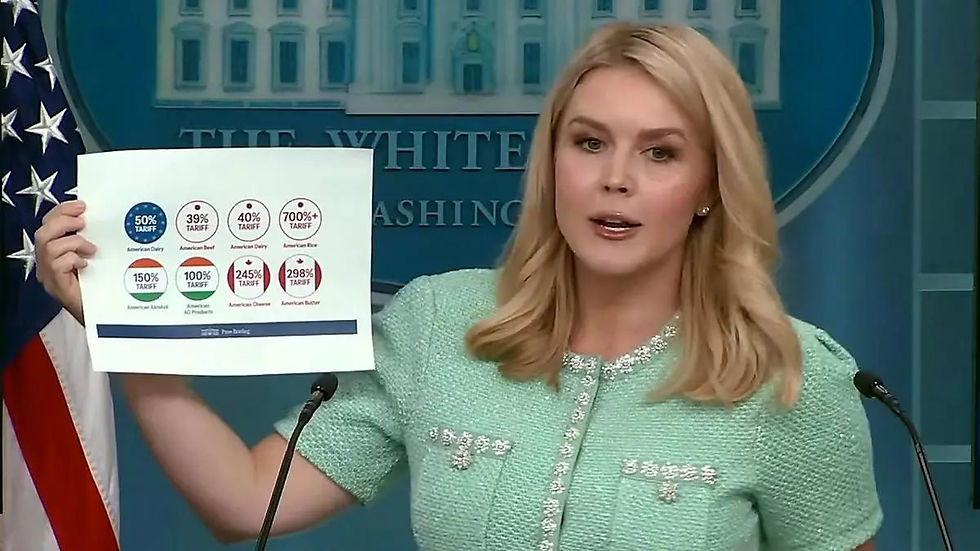U.S. Calls Out India's 150% Tariff on Alcohol, 100% on Agriculture
- paolo bibat
- Mar 12, 2025
- 2 min read

The United States has expressed strong disapproval of India’s high tariffs on American products, with White House Press Secretary Karoline Leavitt highlighting the issue during a press briefing on Tuesday.
The tariffs, which include a 150% duty on American alcohol and a 100% tariff on agricultural imports, were described as significant obstacles to fair trade and detrimental to U.S. businesses and workers.
High Tariffs Under Scrutiny
Leavitt, responding to a question about Canada’s trade practices, expanded the discussion to include other nations imposing steep tariffs on U.S. goods. “India levies a 150% tariff on American alcohol. Do you think that helps Kentucky bourbon exports to India? I don’t think so,” she remarked. She also pointed out the 100% tariff India imposes on agricultural products, comparing it to Japan’s 700% tariff on U.S. rice.
During the briefing, Leavitt displayed a chart illustrating the tariff rates imposed by India, Canada, and Japan, emphasizing the disproportionate duties faced by American exporters. The chart included visual elements in the colors of India’s national flag to underscore the issue.
Trump Administration’s Push for Reciprocity
Leavitt reiterated President Donald Trump’s commitment to “reciprocity” in trade practices, stressing that the administration seeks “fair and balanced” trade relationships. “It is high time we have a president who prioritizes the interests of American businesses and workers,” she stated, adding that Trump has been vocal about addressing these trade imbalances over the past few days.
President Trump recently claimed that India had agreed to significantly reduce its tariffs following increased scrutiny of its trade policies. However, no formal agreement has been announced, and negotiations between the two nations remain ongoing.
India’s Perspective and Broader Trade Context
India has defended its trade policies as part of its broader economic strategy to protect domestic industries. Indian officials have indicated that tariffs on goods like alcohol serve as leverage in ongoing negotiations with the U.S., particularly regarding a potential free trade agreement (FTA).
Commerce Secretary Sunil Barthwal recently informed a parliamentary panel that no commitments have been made to reduce tariffs, emphasizing that India’s interests would be safeguarded in any trade deal.
The U.S., meanwhile, has also criticized Canada for imposing nearly 300% tariffs on American cheese and butter, further escalating trade tensions with its North American ally.
Implications for Global Trade
The White House’s criticism of India comes amid heightened global trade tensions as the Trump administration continues to push for revised agreements with multiple countries. Analysts suggest that these disputes could lead to broader trade negotiations or even retaliatory measures if unresolved.
As discussions between India and the U.S. progress, both nations face pressure to strike a balance between protecting domestic industries and fostering international trade partnerships. For now, India’s high tariffs remain a contentious point in an increasingly complex global trade landscape.




























